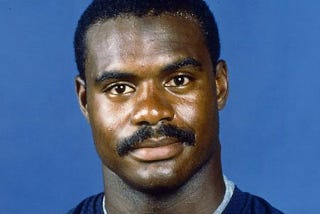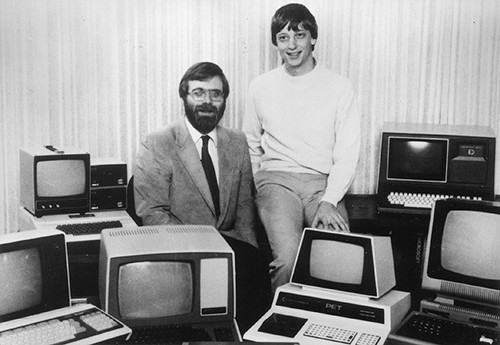A question asked on Quora the other day....
 |
| Hacking the Afterlife - link to the book "Hacking the Afterlife" |
My reply:
"Ha! That’s an easy one. Because I label them, Amazon does not.
If I could label them under “science” I would get a lot of people arguing about the research. So why bother with arguing? As I’ve heard consistently in this research from folks on the Flipside: “Tell people to believe in the possibility of an afterlife, then they won’t waste any more of their time arguing about it.”
 |
| Harry Dean and a furry friend |
(That's a quote from Harry Dean Stanton from "Backstage Pass to the Flipside: Talking to the Afterlife with Jennifer Shaffer")
But let’s consider what you’re asking for a moment. Have I been able to present my research to scientists? Yes, I have. It happened after I finished “Flipside.” I was invited to the University of Virginia’s Dept of Perceptual Studies to speak about what I’d learned by filming people under deep hypnosis about the afterlife.
In the room were some of the top scientists in the world with regard to consciousness studies, including Dr. Bruce Greyson (NDE), Dr. Jim Tucker (reincarnation) Ed Kelly PhD (Psi) and others. They had all read the book, and began our conversation with telling me that “hypnosis is not considered a valid scientific tool.” (And Ian Stevenson, the founder of DOPS had written about why that’s the case.)
(A good place to take a look at near death experiences is IANDS.ORG - The website for DOPS is here: (see article below)
Fortunately, I was aware of Ian’s prejudice against the practice, and agreed wholeheartedly that “hypnosis as it was practiced by Freud” is not a valid tool. Too many factors can influence the process, including the desire of the patient to be cured, the doctor wanted to effect a cure, as well as the time element - “in the next hour please tell me why you’ve got a phobia.”
I pointed out that in Michael Newton’s case (before I was aware of Dr. Helen Wambach’s identical research a decade earlier) the time element was gone - as the sessions took from four to six hours. The questions by design were neutral; “What do you see if anything? Where are we now? Is it day or night? Are you a man or a woman?” But most importantly, and this was my point of pursuing this line of research, it didn’t matter who the person was asking the questions, it didn’t matter who the person was answering the questions, they all said relatively the same things about the journey; having a guide or guides, seeing their friends or loved ones in a “soul group,” all visited a “council” where they saw their life review, etc.
I argued that the fact that thousands of people across the globe said the same basic things during their session created a database of research. I gave them a challenge; to take any person off the street, or anyone that they chose, a skeptic, didn’t matter, and have them do a session; if they got contrary results, then fine the experiment was over; end of discussion.
But if they got the same results that Michael Newton did, or that I was claiming anyone could, then it was up to them as scientists to prove why that is the case.
Because I am not a scientist. I’m a filmmaker. All I was doing was filming these people (which no one had done before) and transcribing exactly what they said, and comparing what they said - different hypnotherapists, different people from across the globe. Everyone said relatively the same thing.
Ultimately, I’ve learned second hand that indeed they have done that - that someone who is in the film “Flipside” has done sessions with scientists and had the same results. As I said at the time “It’s not up to me to prove why that’s the case, I’m just a filmmaker. If you guys are scientists, then it’s up to you why that is the case.”
They pointed out that it was nearly impossible to mount a university based study on what I was proposing. It would cost money, and the people who sponsor these kinds of studies are by and large pharmacological entities who want the results of the tests to help them market and sell their products. That’s not a pejorative - it’s just stating the facts. Very hard to mount a study about something if someone isn’t financing it. (I’m glad to see that DOPS has just published results of a study about reincarnation in children.) https://www.tandfonline.com/doi/...
Now that study is science. (I don’t need to be a scientist to stand outside the school and point in the right direction.)
This topic came up the other day when I was filming an interview with a medium who was answering questions I was posing to people on the flipside. (Jennifer Shaffer - “Backstage Pass to the Flipside: Talking to the Afterlife with Jennifer Shaffer”) At some point, I was asking questions directly to Carl Sagan. (Yes, that Carl Sagan.) I asked “Carl” if he had any advice for his fans.
Jennifer: “He says tell them to stop wasting time doing what he did.”
Rich: “Arguing about the afterlife?”
J: It’s so pointless.
R: Well how can we help them?
J: It’s paradise over here.
R: But how can we help them?
J: We can’t.
R: So these books are not helping. Is that what you’re saying, these books are a waste of time Carl, “Mr. Blue Dot?” (I have a tendency to tease whomever I’m talking to).
J: They’re all laughing. “No. The books are timeless, people can come or go and think what they’ll think and they’ll find them… like if I (Jennifer) had come across your book “Flipside” in my 20’s I wouldn’t have been ready for it, but coming across it when I did was the perfect time for it.”
(Excerpt from upcoming Third Book of “Backstage Pass to the Flipside: Talking to the Afterlife with Jennifer Shaffer.” All Rights Reserved. Copyright Rich Martini 2018)
So I’m not concerned AT ALL whether people find this research annoying, promising, science or fantasy. I know what I know, and I can only report what I’ve experienced, what I’ve filmed and transcribed. I’ll leave it up to posterity to figure out whether or not any of it is accurate. But thanks for the shout out!
Happy Thanksgiving.'
 |
| Book Two - both available on Audible.com |
I'll be appearing with George Noory this coming Dec. 2nd at 10 p.m. PST. Tune in if you'd like to hear the latest about whatever the latest thing is that's on my mind. Always a treat to talk to George.
 |
| George and moi |
Here's the article from DOPS on the scientific research regarding children remembering past lives:
"Some young children, usually between the ages of 2 and 5, speak about memories of a previous life they claim to have lived. At the same time they often show behaviors, such as phobias or preferences, that are unusual within the context of their particular family and cannot be explained by any current life events. These memories appear to be concordant with the child’s statements about a previous life.
In many cases of this type, the child’s statements have been shown to correspond accurately to facts in the life and death of a deceased person. Some of the children have birthmarks and birth defects that correspond to wounds or other marks on the deceased person whose life is being remembered by the child. In numerous cases postmortem reports have confirmed these correspondences. Older children may retain these apparent memories, but generally they seem to fade around the age of 7 . The young subjects of these cases have been found all over the world including Europe and North America.
For the past 16 years, Dr. Jim Tucker, now the director of the Division of Perceptual Studies, has focused mainly on cases found in the United States. His most recent book Return to Life offers accounts of very strong American cases of young children who remember previous lives.
Types of Statements a Child Might Make:
Statements made by a child who seems to be remembering a previous life can be quite varied. The following is not an exhaustive list by any means. It is designed to give an idea of the kinds of things a parent or caregiver might hear, and in our Western culture, tend to dismiss as fantasy. It is also true that a child might say one or more of these things and not be remembering a previous life. It is probably best not to pump a child for information, nor to try and prevent him or her from saying such things.
- “You’re not my mommy/daddy.”
- “I have another mommy/daddy.”
- “When I was big, I …(used to have blue eyes/had a car, etc.).”
- “That happened before I was in mommy’s tummy.”
- “I have a wife/husband/children.”
- “I used to…(drive a truck/live in another town, etc.)”
- “I died … (in a car accident/after I fell, etc.)”
- “Remember when I …(lived in that other house/was your daddy, etc.)”
Please contact us if your child appears to be having memories of a previous life:
- We are very interested in hearing about cases of young children who are currently spontaneously speaking about memories of a previous life. If you are a parent or a caretaker of a young child, please contact us to submit your observations and experiences of your child’s behaviors and statements about memories of a previous life.
Advice to parents of children who are reporting memories of a previous life.
- If you are a parent seeking advice about your child who seems to remember a previous life, please refer to Advice to Parents.
Books about the research being done at DOPS into memories of previous lives:
We invite you to view a list of books on reincarnation written by our faculty. The list includes books written by our director, Dr. Jim Tucker, as well as the long list of books authored by our founder, Dr. Ian Stevenson. Among the many ground breaking books by Dr. Stevenson is his comprehensive two volume set, Reincarnation and Biology: A Contribution to the Etiology of Birthmarks and Birth Defects, Volumes I and II. In this 2268 page, two volume set, Dr. Stevenson wrote about his extensive research into cases of birthmarks and birth defects which appeared to strongly correlate to memories of a past life in particular subjects. Dr. Stevenson also wrote an abridged version of this research called Where Reincarnation and Biology Intersect.
In 2013, Dr. Jim Tucker, appointed director of the Division of Perceptual Studies in 2014, authored his second book on the topic of cases of children who report memories of a previous life. In his most recent book Return to Life, Dr. Tucker describes the research into strong American cases being carried out at DOPS. In Tucker’s first book, Life Before Life, he reviews forty years of research into children who report memories of previous lives. This book contains some accounts of interesting American cases, as well as descriptions of Dr. Ian Stevenson’s classic cases in Asia.
(RM: I'd include Carol Bowman's work "Children's Past Lives" in this list)
Other publications on past-life memories:
For a list of academic papers specifically on the study of past life memories written by our faculty, please see Publications on Past-life Memories.
Expanded List of Publications:
To view the expanded list of publications generated by the UVA Division of Perceptual Studies researchers, go to the Academic Publications Page.



























